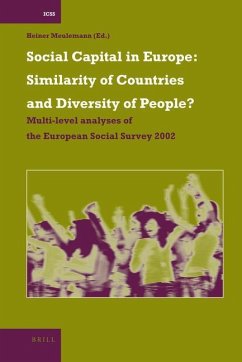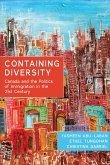Social capital is not only usefel for the person who owns it, but it may also foster the integration of a society and the stability of a democracy. Friendly relations, social trust and norms of reciprocity ease the living together in a society and encourage people to take part in democratic decision making. This volume examines the differences in levels, causes and consequences of social capital between 22 European countries surveyed in the 2002 European Social Survey. At first glance, social capital differs strongly between countries. Yet the determinants of social capital differ strongly between European people as well. If one takes account of the latter, the former may no longer appear so large. The volume asks whether this is indeed the case so that a similiarity of countries goes along with a diversity of people. To examine this, muliti-level analyses are used in each contribution.
Hinweis: Dieser Artikel kann nur an eine deutsche Lieferadresse ausgeliefert werden.
Hinweis: Dieser Artikel kann nur an eine deutsche Lieferadresse ausgeliefert werden.








